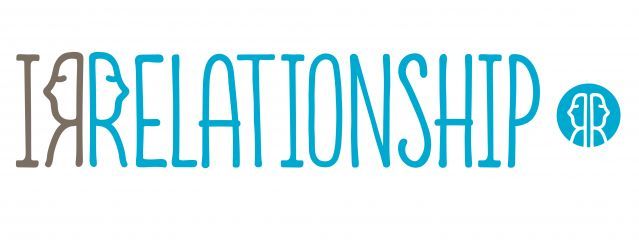Ethics and Morality
The Meaning of the APA's Dealing With the Torture Scandal
When professional stewards act-out unbearable systemic insecurities.
Posted July 22, 2015

What Does It Mean: How The American Psychological Association Is Dealing with The Torture Scandal?
What can we say when stewards of professional ethics fall prey to insecurity, ineffective problem solving, and incompetence in caretaking and communication?
After years of deceiving its members, the public, and other professionals, and opposing strong and clear dissent from within its very ranks, the American Psychological Association (APA) finds itself in a particularly awkward position. What does a professional organization which has lost its moral compass do when the news breaks? What does its reaction to the current controversy tell us about the APA’s organizational character?
Character, as we define it, is the sum total of psychological defenses and strengths that any entity uses to deal with challenges, both internal (one’s own conflicts and limitations) or external (threats from without), and where inner and outer overlap and interact. We speak of the character of any entity—whether a couple, a group, a community or an organization—as a key factor to consider in trying to understand behavior and decisions. Irrelationship is a shared enactment where those within unwittingly avoid anxiety-provoking issues by resorting to maladaptive approaches (relationship and interaction patterns, specifically). It results in a relational dynamic where a particular set of coping mechanisms, characterized by appearing to provide care and concern, become the means for avoiding mutual emotional connection and everything that might come along with that (compassion, empathy, intimacy, accountability, a sense of ownership, investment, and the like).
What Does It Tell Us When An Organization Is Silent On A Glaring, Public Issue?
According to a new report by independent investigator David Hoffman, individual APA members lied and covered up their extensive involvement with post-9/11 torture. Shockingly, yet somehow unsurprising at the same time, on behalf of those members, the entire APA organizational structure (minus some very vocal dissenters) colluded to keep these lies going. And not only that, even though this disturbing news has broken into the public spotlight, and lit up the discussions on numerous APA divisional listservs, there is eerily little comment from psychologists on popular blogs.
However, Dr. John Grohol, founder and CEO of Psych Central writes:
And not just a decade or more ago. No, the lies and justifications for the lies continued right up until last year. After a book critical of APA’s stance on torture was published last year by James Risen (2014), did the APA suggest the book had merit? Nope, instead the APA kept making excuses, discrediting the author and the book saying it was “largely based on innuendo and one-sided reporting” and “a thorough review of these public materials and our standing policies will clearly demonstrate that APA will not tolerate psychologist participation in torture.” (see the whole article here)
And, here’s what the Guardian had to say:
For more than a decade, the American Psychological Association (APA) has maintained that a strict code of ethics prohibits its more than 130,000 members to aid in the torture of detainees while simultaneously permitting involvement in military and intelligence interrogations. The group has rejected media reporting on psychologists’ complicity in torture; suppressed internal dissent from anti-torture doctors; cleared members of wrongdoing; and portrayed itself as a consistent ally against abuse.
Now, a voluminous independent review conducted by a former assistant US attorney, David Hoffman, undermines the APA’s denials in full — and vindicates the dissenters.
Will the “dissenters” become the future leaders of the organization, or will others fill the roles vacated by the exodus of current leadership?
Do No Harm—But…
Silence is what?—golden—collusive—toxic—essential (when facing unbearable truth)? When silence means listening to understand, it is indeed golden. When silence equals death… when silence represents abuse of power or abdication of responsibility, silence is not golden.
Years of APA deception comes to frank and sobering public awareness this week. Back in 2006, it was a different story. A minority group of concerned psychologists were upset because of an article in the New York Times describing how the military decided they would use only psychologists (of the APA) as Behavioral Science Consultation Teams (BSCTs, pronounced “biscuit”*) rather than physicians, because of the APA’s less restrictive ethical standards as contrasted with the American Medical Association’s.
In a response to an email campaign launched after the Times article, then APA President Gerald Koocher wrote a letter that is conflicted, confounding, and makes use of double-speak to rationalize collusion with unethical and illegal interrogation procedures.
The Board has adopted as APA policy a Task Force Report, which unequivocally prohibits psychologists from engaging in, participating, or countenancing torture or other cruel, inhuman, or degrading treatment. As the basis for its position, the Task Force looked first to Principle A in the Ethical Principles of Psychologists and Code of Conduct, "Do No Harm," and then to Principle B, which addresses psychologists’ responsibilities to society. Both ethical responsibilities are central to the profession of psychology. By virtue of Principle A, psychologists do no harm. By virtue of Principle B, psychologists use their expertise in, and understanding of, human behavior to aid in the prevention of harm.
In both domestic and national security-related contexts, these ethical principles converge as psychologists are mandated to take affirmative steps to prevent harm to individuals being questioned and, at the same time, to assist in eliciting reliable information that may prevent harm to others. (for a timeline of APA’s policies and actions related to detainee welfare in the context of interrogation and security click here)
Koocher’s letter reflects the now indisputable fact that the APA house was not in order. In contrast to those in the psychiatric community, APA representatives were unable to be unequivocal regarding participation in torture/coercive interrogations. Repeatedly APA has said to the public, "our ethics code says Do No Harm". What does it mean, though, when Dr. Koocher writes, “at the same time...assist in eliciting reliable information that may prevent harm to others”?
One important subtext: What are effective means of collecting information from prisoners, criminals, enemy combatants, friends, lovers, co-workers, family? Does torture produce useful information or is it an easy out, one which doesn't work? In spite of expert recommendations that building rapport and using incentive systems get good quality counter-terrorism information, under threat, political and time pressures, and so on, torture may seem “necessary” (to see an overview of the results from Senate Intelligence Committee click here).
Could retaliation be at play on a deeper level? As in personal relationships, retaliation as a substitute for communication does not lead to greater connection—in this case, the connection required to both get good quality information from interrogation, as well as the methods required to maintain our integrity and humanism while also preventing harm from terrorism. Rather than setting up do no harm as an either/or, can it be a both/and in which we meet our own needs for safety while also getting what we need from others?
Repeatedly APA has said to the public, "our ethics code says do no harm" and this was undone by saying "but" (implicit in Koocher’s letter). Irrelationship rationalizes that but. One the one hand, we wholeheartedly hold our organization, community, nation—ourselves—accountable to preserve our most cherished values and ethics, even if we as a nation show great ambivalence about our highest morals, even splitting in the national psyche from the highest levels on down. A nation founded on equality and freedom, the individual right to the pursuit of happiness but…racism, slavery, gender inequality, exceptionalism, human rights violations, and so on.
Do we buy into a simplistic and naïve delusion of safety and security in the hands of others while placing ourselves at risk from an erosion of our own values? The accusation of not being patriotic if one opposes torture, for example, to silence dissent. To dissent is to risk becoming a target. Dissenters in times past, and at present in less progressive cultures, often became political prisoners at risk themselves for being tortured.
Squaring Ourselves with Intolerable Truths
Why would the community of psychologists—purporters of individual liberalism and non-invasive acceptance of self-and-other—turn a studied blind eye to such in-depth involvement in a stance completely antithetical to all it stands for? We now find psychologists—professional caretakers—justifying unethical and immoral behavior of a system that has not figured out how to effectively address, deal with and diminish terror. Was the APA caught red-handed acting out the very terror that our nation’s (more than a decade of) fear-mongering continues to instigate? Irrelationship requires that we reverse caretaking roles when our (parental, organizational, national, international) caregivers prove themselves ineffective.
How can we make sense of the behavior of psychologists who truly didn’t believe descriptions of what was happening for years and years in the face of repetitive and credible outcry? One analogy is of the spouse who chooses not to believe in the infidelity of her or his partner, despite increasingly obvious evidence, until brittle denial finally shatters under that last fateful blow. Is the APA subject to the tendency to act out overwhelming anxiety by taking on misguided and distorted caretaking roles and routines rather than by squaring off with deeply uncomfortable truths? We are more startled by this behavior when it comes from professional caregivers, who we expect to be competent, empathic and oriented toward healing and humanism. Instead, we observe unbearable insecurities combined with ineffective solutions in the hands of incompetent at best, abusive at worst, caretakers. This is deeply unsettling, and we still don’t know what it might mean, and portend, for a world sinking deeper into terrorism and counter-terrorism.
References
Ackerman, S. (2015). US Torture Doctors Could Face Charges After Report Alleges Posr-9/11 ‘Collusion’. The Guardian (July 11, 2015).
Borger, J. (2014). US Report on ‘Enhance Interrogation’ Concludes: Torture Doesn’t Work. The Guardian (Decmebr, 9, 2014).
Grohol, J. M. (2015). The Hoffman Report: After Years of Lies, Who Holds the APA Accountable? Psych Central (July 11, 2015).
Herbert, W. (2014). The Science of Interrogation: Rapport, Not Torture. Huffington Post. (December 11, 2014).
Lewis A. (2006). Military Alters the Makeup of Interrogation Advisers. New York Times (June 7, 2006)
Risen. J (2014). Pay Any Price: Greed, Power, and Endless War. Chicago, IL: Houghton, Mifflin Harcourt
For Further reading:
*BCSTs are groups of psychologists and psychological technicians who advise the commanders of Enemy Prisoner of War and Unlawful Enemy Combatant detention facilities on how to conduct safe, legal, ethical and effective operations.
Visit our website: http://www.irrelationship.com
Follow us on twitter: @irrelation
Like us on Facebook: www.fb.com/theirrelationshipgroup
Read our Psychology Today blog: http://www.psychologytoday.com/blog/irrelationship
Add us to your RSS feed: http://www.psychologytoday.com/blog/irrelationship/fee

The Irrelationship Blog Post ("Our Blog Post") is not intended to be a substitute for professional advice. We will not be liable for any loss or damage caused by your reliance on information obtained through Our Blog Post. Please seek the advice of professionals, as appropriate, regarding the evaluation of any specific information, opinion, advice or other content. We are not responsible and will not be held liable for third party comments on Our Blog Post. Any user comment on Our Blog Post that in our sole discretion restricts or inhibits any other user from using or enjoying Our Blog Post is prohibited and may be reported to Sussex Publisher/Psychology Today. The Irrelationship Group, LLC. All rights reserved.




